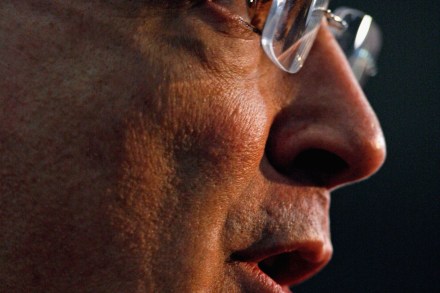Osborne gets bolder on spending cuts
And so the Tories continue to ramp up their rhetoric on spending cuts. On the day that the Institute for Fiscal Studies again warns of the hole in our public finances, George Osborne has claimed that a Tory government would the look at the public sector’s “inflexible” three-year pay deals. Paul Waugh has all the key quotes, but this passage sums up the tone of Osborne’s message: “I haven’t ruled out further tax rises although I will work hard to avoid them. I think where the bulk of the strain needs to be borne is on spending restraint. I think the current spending plans pencilled in by the government of












